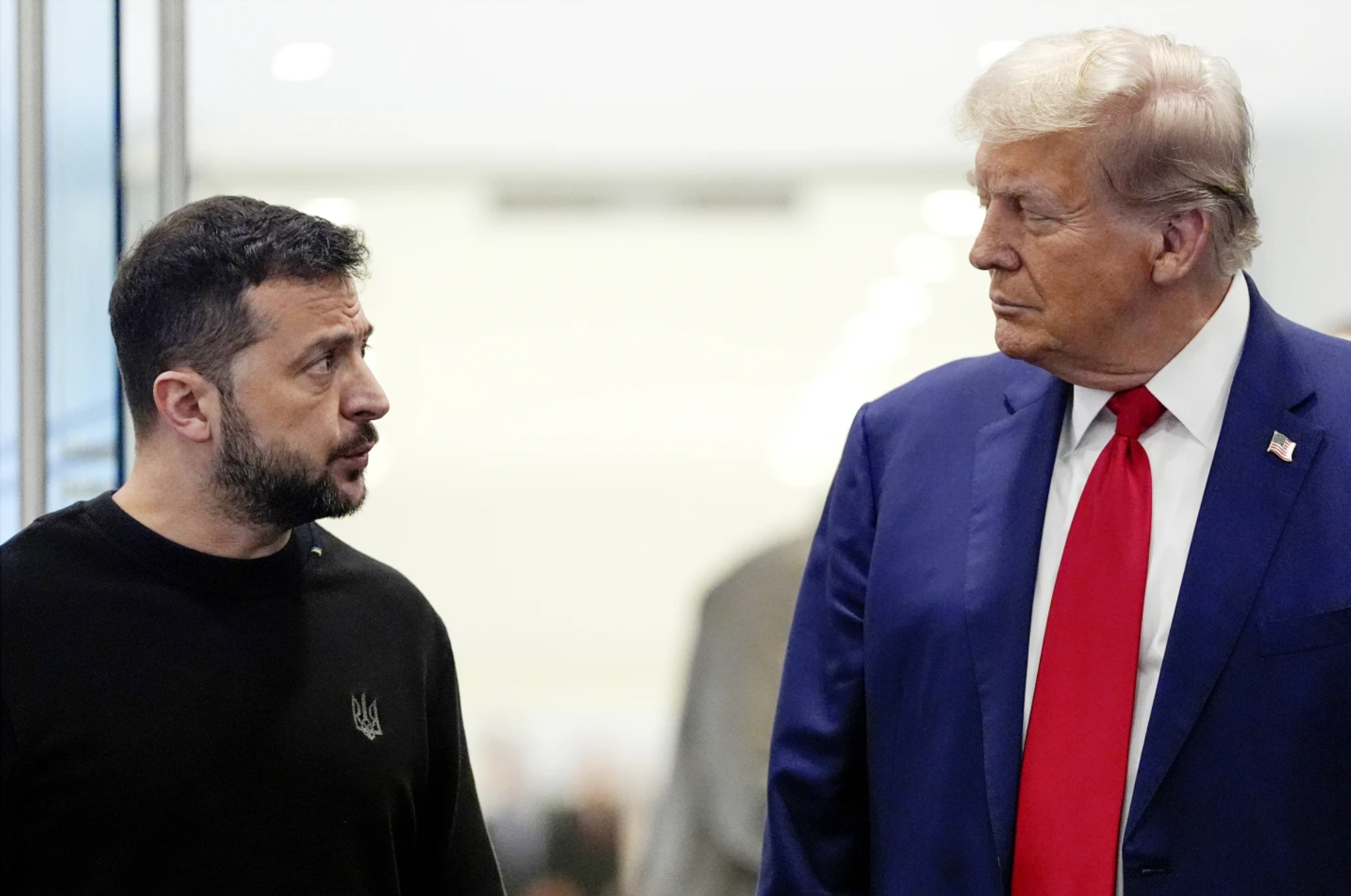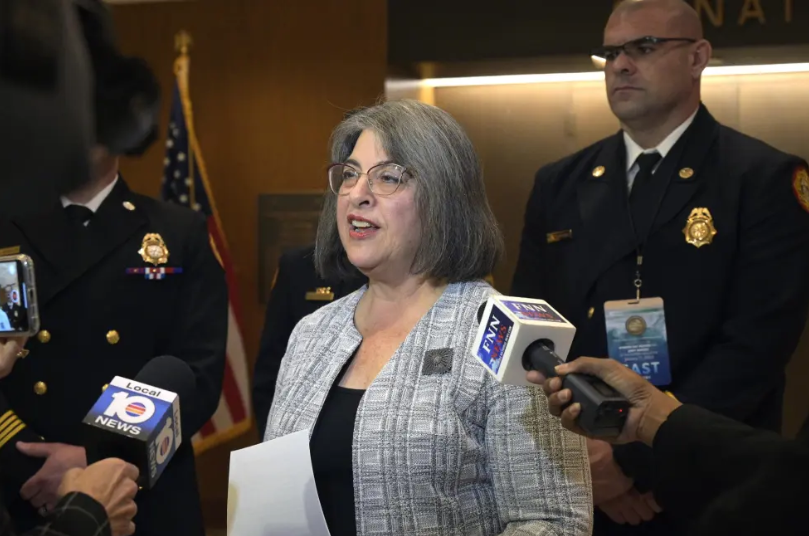The Donald Trump administration’s proposal to cut half of federal workers at the nation’s housing agency is targeting employees who support disaster recovery, rental subsidies, discrimination investigations and first-time homebuyers, according to two documents obtained by The Associated Press.
More than a dozen programs within the Department of Housing and Urban Development’s (HUD) portfolio would be affected by the loss of some 4,000 positions detailed in the documents, raising concerns among former HUD officials and housing advocates who say a skeletal staff could slow or even stall the department’s critical work.
HUD spokesperson Kasey Lovett on Thursday said the leaked documents “should not be taken as final” as staffing is evaluated throughout the agency. The documents, which aren’t clearly dated but were circulated this week, include total staffing numbers, expected resignations, as well as a projected “Day 120 Headcount” and reduction percentage of staff at individual HUD offices.
Such dramatic staffing cuts are in line with the administration’s broader push to gut government spending, with HUD Secretary Scott Turner in recent days touting his new Department of Government Efficiency task force inspired by billionaire Elon Musk while also announcing $1.9 billion in “misplaced funds” as well as $260 million identified as “wasteful contracts.”
“HUD is following direction from the administration while also ensuring the department continues to deliver on its critical functions, mission to serve rural, tribal and urban communities and statutory responsibilities,” Lovett said in a statement.
Here’s a look at some of the significant staffing cuts under consideration and how it could impact HUD’s most wide-reaching work:
Disaster relief
The Office of Community Planning and Development — which the documents propose cutting by 84% of its staff — is the arm of HUD that helps repair homes and infrastructure after natural disasters, administering $1.65 billion sent to North Carolina after Hurricane Helene.
It also oversees homelessness initiatives and the Community Development Block Grant that funnels billions of federal dollars to local governments for community development programs, such as libraries or affordable housing.
Staff across HUD offices also answer questions, offer guidance and technical support, helping communities navigate federal rules and plan, develop and manage projects.
The proposed cuts outlined in the documents would reduce the office from 936 employees to just 150.
“That would lead to significant delays in funding getting out to communities nationwide,” said Ann Oliva, who worked as a HUD official for a decade and is now CEO of the National Alliance to End Homelessness.
“We’ve already heard from programs that have said, ‘We are going to go ahead and pause taking new folks for right now until we understand what’s happening to our funding,’” Oliva said.
Lovett said “disaster relief efforts will not be impacted” in an email, but did not elaborate.
Rental assistance
At the Office of Public and Indian Housing, which facilitates rental assistance subsidies for more than 3.5 million households and supports public housing for roughly 1 million, the headcount could be slashed by half in the coming months, from 1,529 employees to 765 people, according to the documents.
Georgi Banna, General Counsel for the National Association of Housing and Redevelopment Officials, said there’s been lots of questions but little information from the administration on how exactly any reduction in staff will be carried out and what the plan will be for HUD’s work if there are mass layoffs.
Banna said cuts to Public and Indian Housing staff could slow down payments for the Section 8 vouchers program that provides rental assistance to millions of low-income people.
The tenants themselves have protections as long as they pay their portion of the rent to the landlord per their lease agreements, but they could ultimately be displaced if landlords quit the voucher program altogether over any breach of contract.
“This program only works well when landlords are involved,” Banna said. “Without landlords, this program can’t exist.”
First-time homebuyers
The Office of Housing, which could face a 44% cut in staff, provides counseling for first-time homebuyers and mortgage insurance, which makes it easier for middle- and lower-income Americans to qualify for a home loan through the Federal Housing Administration (FHA).
The loss of over 1,000 employees could slow down those opportunities for homeownership, said Antonio Gaines, who’s worked at the department for over two decades and is president of AFGE National Council 222, which represents HUD workers.
“There are going to be consequences all the way across the board,” Gaines said.
On X, the department said it will prioritize “the critical role FHA plays in the mortgage market.”
Housing discrimination
As the enforcer of the nation’s fair housing laws, HUD’s Office of Fair Housing and Equal Opportunity could see hundreds of employees eliminated, including the administrative staff that investigates discrimination complaints.
“They are struggling to do some of the basic functions of the agency,” said Shamus Roller, Executive Director of the National Housing Law Project.
The proposal to trim the department from 572 employees down to 134 people would mean a nearly 77% reduction to the program — the type of bone-deep cut that many housing advocates had long expected as part of the Trump administration’s crusade against diversity, equity and inclusion initiatives.
Though Turner has previously committed to upholding the Fair Housing Act, which includes a statutory mandate for HUD to fight discrimination, his administration can remake how the agency carries out the spirit of the law. On Thursday, Turner said on X that HUD had cancelled $4 million in DEI contracts.
___
Republished with permission of The Associated Press.
Post Views: 0

 Entertainment8 years ago
Entertainment8 years ago
 Entertainment8 years ago
Entertainment8 years ago
 Politics8 years ago
Politics8 years ago
 Tech8 years ago
Tech8 years ago
 Tech8 years ago
Tech8 years ago
 Tech8 years ago
Tech8 years ago
 Politics8 years ago
Politics8 years ago
 Tech8 years ago
Tech8 years ago










